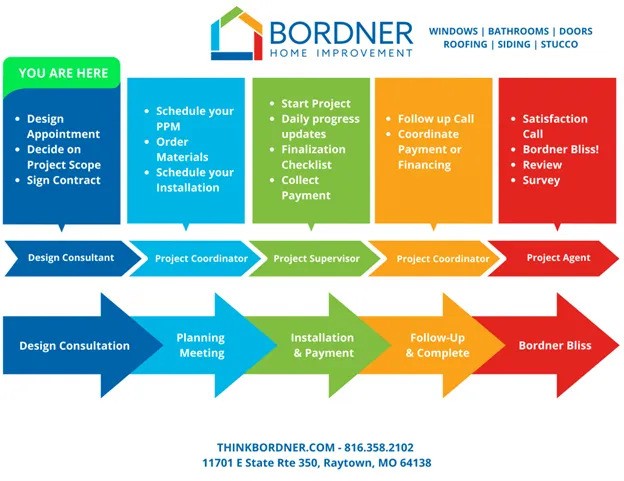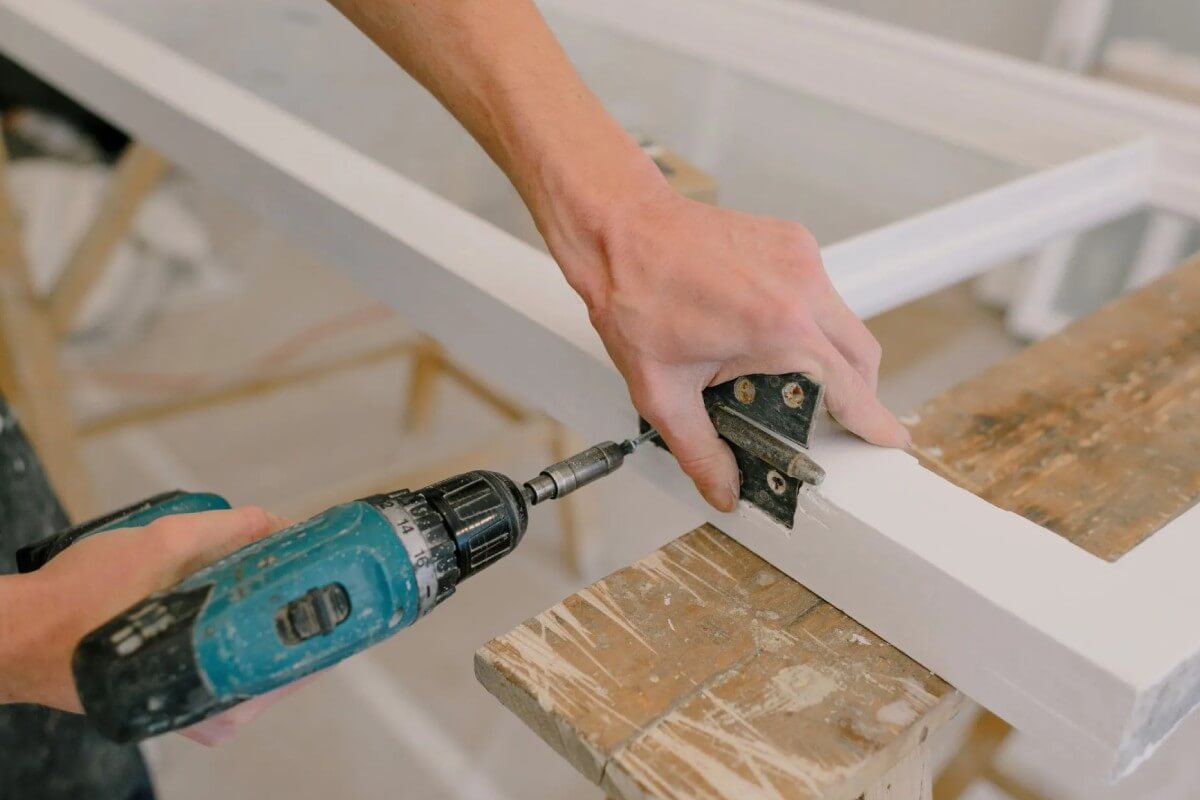Wouldn’t you love to find good quality work from a trusted contractor? Here’s every homeowner’s dilemma: when you hire a contractor the cheapest bidder is often cutting corners and using substandard materials, but on the other end, quality equals expensive…but does it really?
Break the cliché “you get what you pay for”. These steps will help you get your money’s worth out of the contractor you choose to hire without breaking the bank.
Start with Recommendations from People You Trust.
One word stands out when choosing a contractor: REVIEWS! It has never been easier to check if a company’s claims are valid, with a few clicks you can get a sample of their customers’ stories.
We recommend reviewing their Google, Angi, and HomeAdvisor reviews! A contractor’s work will speak for them and you will be all the wiser to listen.
The Better Business Bureau is a great resource because they do more than just accept reviews. They verify claims and seek resolution, tracking which businesses are willing to resolve problems with unsatisfied customers. Check out their resources here https://www.bbb.org/.
Be empowered by your community and use Social Media! It is often a decent place to start looking for recommendations. If you post a request, wait for a few responses and try to avoid the outliers which may not be legitimate. Once you gather a couple of suggested contractors, compare what you learned about them with their online reviews to narrow down your list.
Check Credentials
HomeAdvisor is another great resource. They explain the nuances between licensing, registration and certification here along with a list of the legal requirements by state.
Some certifications hold higher standards than others and bring with them more accreditation. Look for State or local business licenses, MHIC license, Manufacturer License, which is a dealer specific product license. Producers like Owens Corning for example have tiers of licensure to be attained. Bordner, for example, is a Premium Platform dealer and our credentials are listed on the Owens Corning website with ratings. Indeed also has a list of some other in demand certifications in construction here.
Check credentials and make sure you ask to see their permits and insurance. Permits are permissions by the city or state to do certain types of work, they must be obtained for specific projects and need to be renewed more often. By doing so you may avoid fines from your city or state for work that is done without proper permits.
The above shouldn’t be too too difficult to attain when you hire a contractor. Insurance on the other hand is not as standardized and can be tricky to navigate. Make sure your contractor has proof of working with previous insurance adjusters. Ask your agent if they recommend the contractor you are considering. We still recommend that you ask to see their policy on damages incurred on the worksite (your property) as well as workman’s compensation. This will give you peace of mind that your property is safe and you won’t have a claim against your home insurance if their workers are injured on your property. Checkout the worker’s compensation laws for MO & KS.
Define Your Project
Two of the most common issues that arise during home improvement projects are miscommunication and unspecified expectations. It can be difficult to keep track of all the little details, until the project is done and you realize the closest outlet is too far away and your blow dryer cord won’t reach, or the cable will lay across the walkway and trip people.
Writing down specifics will help solidify your concept of the project. Get accurate dimensions, and include references and material types you prefer. Imagine yourself using the space. How will you maneuver in it, what will the work/play flow be like? Consider the main points of visual focus you want to draw attention to (or away from). To do this you have to be clear on what your dream is. What items are negotiable or not? Pinterest and Google are wonderful resources to find ideas and images of what you want – and we all know how many words a picture can save you.
Know that questions are important – when you hire a contractor, notice what they ask you as much as what you ask them. At Bordner we ask all our customers what their top three “hot buttons” are, aka what is most important to them. Take some time to consider what is most important to you before your consultation. Some common responses we get are to cover certain plants or furniture for protection, communicate with them every step of the process and make sure the site is 100% cleaned up when finished.
Be Precise on Price.
Be adamant that your contract includes the down-to-the-penny exact price you’ll pay, including any finance charges and interest. Unfortunately many contractors will offer ballpark estimates to cover their tracks and give them fudge room. Don’t be fooled or surprised.
Have a detailed payment plan set in stone before work begins. Include any money down and all due dates for each installment until the end of term. Never pay for the entire project in advance. Smart contractors allow for the unexpected. Ask how your contractor deals with issues that will increase the cost mid-project. Your contract should have some form of “change order” that defines how to handle anything that would affect the scope of the work, and the price of the project. A few good questions to ask your contractor are: How do you ensure that you won’t go over budget without my consent? Have you ever left a project unfinished and if so, why?
Know the Timeline for Your Project

Ask the contractor you hire what to expect from start to finish. What are the steps from the initial meeting, to measuring, ordering materials and installation? How often and how long will you have people in my home? How long will part of my home be dismantled during the actual construction portion? If the project is extensive will I have to vacate my house at any point?
Understand that time frames will, of necessity, be more fluid for outdoor projects, especially during winter months. Delays in material production have affected most industries since the 2020 apocalypse as well. Still, your contractor should have a good understanding of their market and their timing estimate should reflect that accurately.
Ask for Details About Warranties
It’s natural in today’s age to be wary of guarantees and warranties. When you hire a contractor everyone’s making the same claims, but you know they can’t all be equal. Some ways to check a warranty’s legitimacy are:
- Ask what does it NOT cover?
- Are there shipping, repair, or consultation fees to fix damages?
- Does the product need to be serviced regularly to maintain the warranty? Is there a service package and what does it cost? Does servicing have to be through the manufacturer?
- What would void the warranty? Sale of the property, DIY upgrades or maintenance?
- How long has the company been in business? If it’s a newer business how will you know that they will still be around in five, ten, or fifteen years to cover the lifetime warranty they promised you?
It’s unfortunate but, some companies change names every few years to avoid honoring warranties. This is why most hired contractor’s advertise their company history and testimonials. Trust matters.
Be Clear on What Your Contract Says.
Take the time to read your contract thoroughly…even if the silence is awkward while you do so. Be wary of any business that rushes you through this stage. Don’t be afraid to ask questions. If something is confusing or doesn’t seem to uphold what you have agreed upon verbally, ask for clarification. You can even ask for changes to be made in the contract before you sign it.
Have a plan in place before work begins on how you will resolve unexpected issues or differences. The plan should be written into the contract. Know who is responsible for handling any complaints or concerns and how to contact them.
Know Who is Responsible for Cleanup.
Who is responsible for removing debris and excess/old materials? Is there a fee for cleanup or removal of dangerous materials?
How will they protect your property from their presence and/or work equipment? If they leave tire ruts in your yard or stomp on your prized rose bushes…the last thing you want to do is deal with their insurance.
It’s imperative to take pictures of the project before work begins, just in case you need to hold them accountable. Plus it’s fun to have before and after photos. You might even be able to offer the images back to the company for perks or discounts if you are satisfied with their product. Get close ups of details you want to protect. If you’re really interested in the before and after idea, try to frame the photos from the same angle so they are obviously the same space, and your fantastic new updates will stand out better!
We know this all may seem like a lot of work just to hire a contractor! On the bright side, a good company will make these steps easy and fluid for you. They do this every day and should have procedures in place to supply you with everything you need to the make an educated decision that benefits you. Bordner is not alone in our policies to give access to our licensure and insurance upfront, and supply all permits quickly upon request. A good contractor will want to walk you through the contract in detail and be clear on all the processes they follow. Unclear expectations only benefit tricksters. A company who stands behind their work will do their best to prevent issues before they cost anyone time, money and stress.






